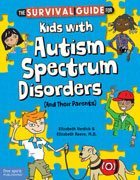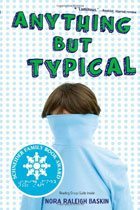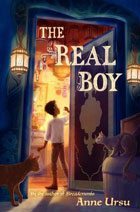by Elizabeth Verdick
I spent the month of April reading children’s fiction featuring characters with Autism Spectrum Disorder (ASD). April was Autism Awareness Month, but that wasn’t my only motivation. I love children’s literature, I have written nonfiction about ASD, and I’m raising a son who’s on the autism spectrum. I wondered, Which middle-grade stories could I hand him, saying, “I think you’ll really like this”?
 I read the books with zeal — and growing discomfort. Why did many portrayals of characters with ASD lack the authenticity one yearns for in fiction? Why did the plots include so many tropes? Why did the narrative voice often rely on devices: interjections of random facts, unusual uses of capitalization and/or italics, or an artificially distant tone in moments of emotion? Such representations, though well intentioned, may leave readers with an overly simplified impression of the autistic experience.
I read the books with zeal — and growing discomfort. Why did many portrayals of characters with ASD lack the authenticity one yearns for in fiction? Why did the plots include so many tropes? Why did the narrative voice often rely on devices: interjections of random facts, unusual uses of capitalization and/or italics, or an artificially distant tone in moments of emotion? Such representations, though well intentioned, may leave readers with an overly simplified impression of the autistic experience.
Again, I thought of my son, who’s not a collection of quirks or a social misfit lacking empathy or emotion. He’s not a budding detective, a genius in one subject, or someone who refuses to be touched (common portrayals). I didn’t want to give him books that suggest his autism is a source of deep conflict, that he’s a burden to his family. Or ones that depict sensory-overload behaviors as barriers to social interaction. I sought stories with three-dimensional characters he might relate to — perhaps look up to — and remember for years to come.
Two books shone brightly.
 Sixth-grader Jason Blake in Anything But Typical by Nora Raleigh Baskin is a protagonist with heart, a boy who struggles with the issues many middle-grade and preteen readers do: identity, family relationships, a crush. Yes, Jason has ASD but his story isn’t about “overcoming” his disability or becoming more, as we say in the autism community, neurotypical. Jason is kind, forthright, curious, creative. He stays true to himself as the plot unfolds, showing readers the ways in which the neurotypical world can be difficult to navigate, especially when others aren’t kind or open in return.
Sixth-grader Jason Blake in Anything But Typical by Nora Raleigh Baskin is a protagonist with heart, a boy who struggles with the issues many middle-grade and preteen readers do: identity, family relationships, a crush. Yes, Jason has ASD but his story isn’t about “overcoming” his disability or becoming more, as we say in the autism community, neurotypical. Jason is kind, forthright, curious, creative. He stays true to himself as the plot unfolds, showing readers the ways in which the neurotypical world can be difficult to navigate, especially when others aren’t kind or open in return.
The story is written in first-person, which gives readers insight into how Jason thinks and feels as he goes about his everyday, yet exceptional, life. He’s an aspiring writer, spending much of his time on the Storyboard website, where he posts his own stories and can comment on the work of others. Here Jason finds a community, but he’s put to the test when his parents offer to take him to the Storyboard conference in another state. Attending the conference means Jason can’t hide behind written words or a screen — he will be out in the open where everyone, including a girl he’s traded stories with online, will see him for who he truly is. Jason’s growth as a character doesn’t arrive in one big moment in which he “discovers” an ability to feel emotion or make a social connection. The author’s focus on realism and authenticity allows readers to experience her character’s incremental growth, which is more satisfying in the end.
 Anne Ursu’s The Real Boy takes a different approach but arrives at a similar destination: deep respect for her ASD character and an authentic emotional portrayal. In this middle-grade fantasy, an eleven-year-old orphan named Oscar is a magician’s helper who lives in the cellar among the cats, where he studies herbs and the magic they bring forth. Readers looking for enchantment and mystery will find both here, but what captured my heart was Oscar himself. He’s smart, earnest, quiet, thoughtful, self-doubting, and brave. He wants to do what is right (if he could only figure out how) in a world that’s becoming increasingly strange and dangerous.
Anne Ursu’s The Real Boy takes a different approach but arrives at a similar destination: deep respect for her ASD character and an authentic emotional portrayal. In this middle-grade fantasy, an eleven-year-old orphan named Oscar is a magician’s helper who lives in the cellar among the cats, where he studies herbs and the magic they bring forth. Readers looking for enchantment and mystery will find both here, but what captured my heart was Oscar himself. He’s smart, earnest, quiet, thoughtful, self-doubting, and brave. He wants to do what is right (if he could only figure out how) in a world that’s becoming increasingly strange and dangerous.
The story uses third-person, told from Oscar’s viewpoint, with a subtle emphasis on his differences: his comfort in routines, his special interests, his confusion about social expectations. The word autism never comes up because the story takes place in another world, one of the imagined past. Yet, readers sense Oscar’s ASD through and through. That’s a credit to the author, who weaves Oscar’s differences into his character and the storyline, rather than highlighting ways in which he doesn’t fit the norm. When left to tend shop during his powerful master’s absence, Oscar gains greater independence and confidence, despite how the townspeople treat him. He forms a friendship with a healer’s apprentice named Callie, and together they set out to discover what is making the town’s children ill and what answers can be found deep among the trees of the wizard woods.
Oscar is an unsung hero. Jason is an “untypical” boy in a world where ASD is largely misunderstood. Their stories open doors for kids on the autism spectrum — and those who want to learn more about what life there is like.

Wonderful examples, Elizabeth. Navigating Early by Clare Vanderpool is another one.
Add Rain Reign to your list. All great books!
Thank you, Elizabeth, for your insight into books on this subject. I’m about to start reading Anything But Typical. I will add The Real Boy to my list!
I very much appreciate your thoughts on this aspect of reading, Elizabeth. I’ve often heard comments about how unrealistic the representation is of characters who are on the autism spectrum. Your explanations help me know what to look for but I suspect I’ll have to rely on you to recommend other books. I hope you’ll keep us updated.